Two of our NUS BBA alumni, Mr Lee Jui Siang and Mr Howie Lau, who hail from mega brands Samsung Electronics Singapore and StarHub respectively, recently returned to school to speak with students on the future of Marketing. Besides sharing a little on their own backgrounds and career journey, they covered Marketing areas such as tech and behavioural trends that impacts marketing and the role of the marketer.
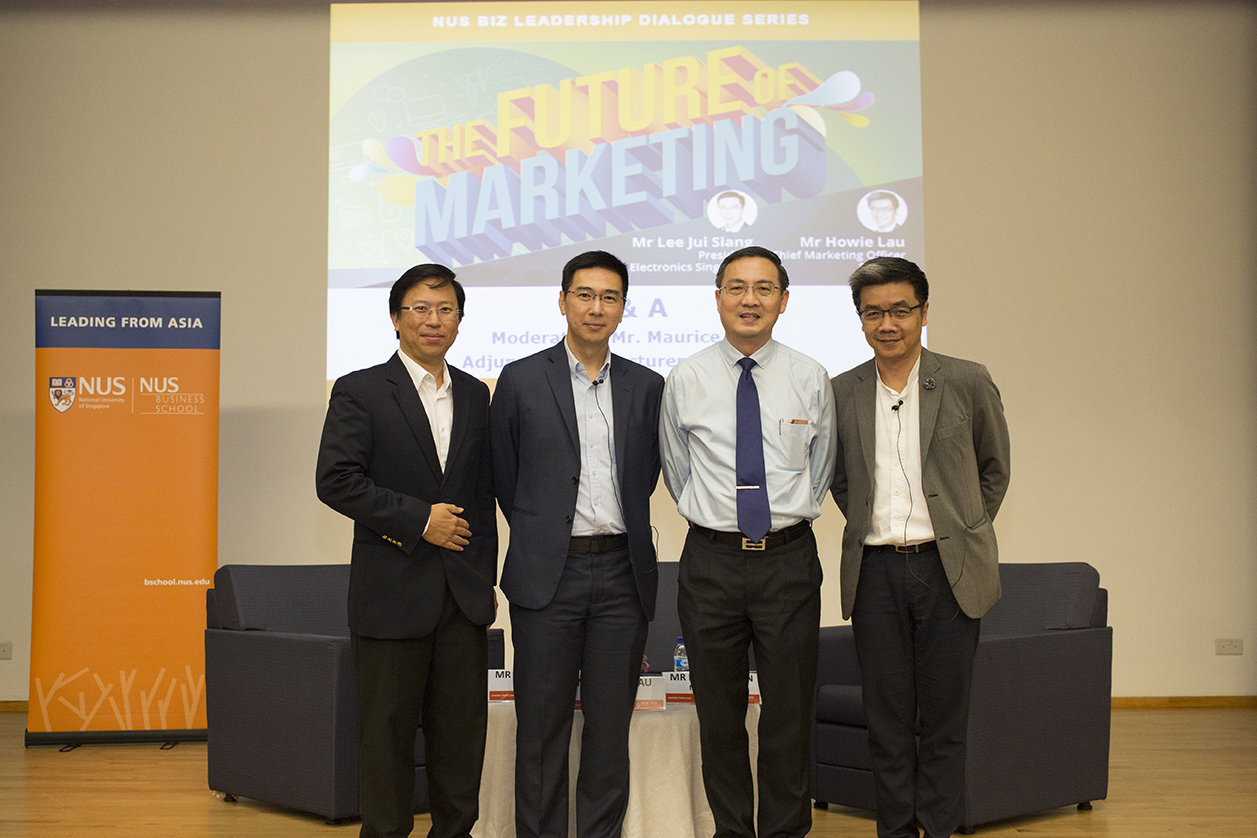
Leadership Dialogue Series on The Future of Marketing
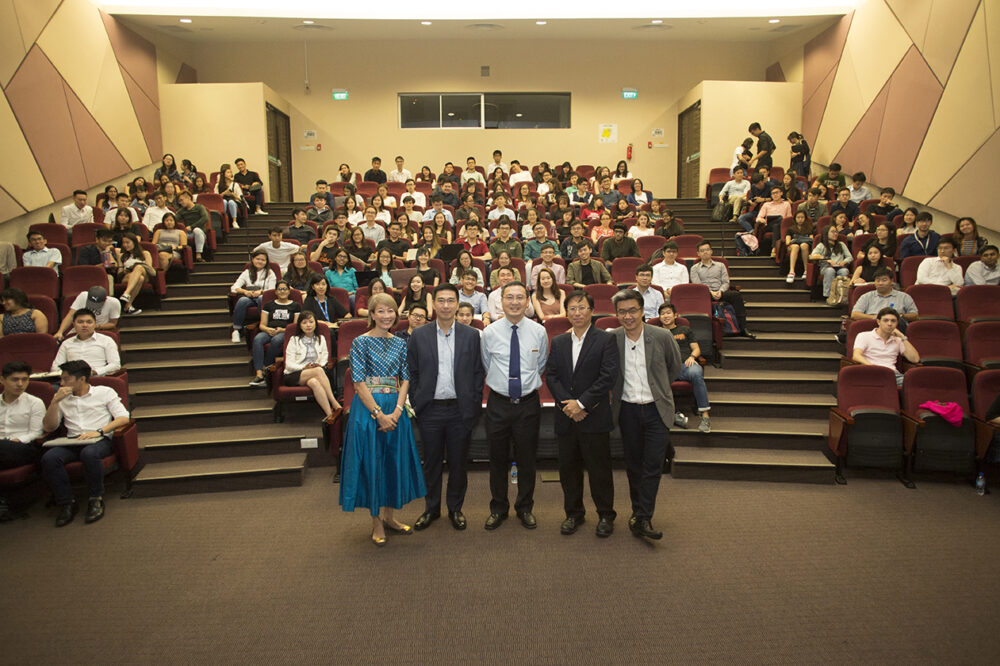
BBA Year 3 Edwin Luke Wee, who is a Management major had two key learning points after the talk:
- the importance of addressing the need to adapt to the constant industry disruptions, and
- the importance of balancing between having a good product and having a good marketing strategy.
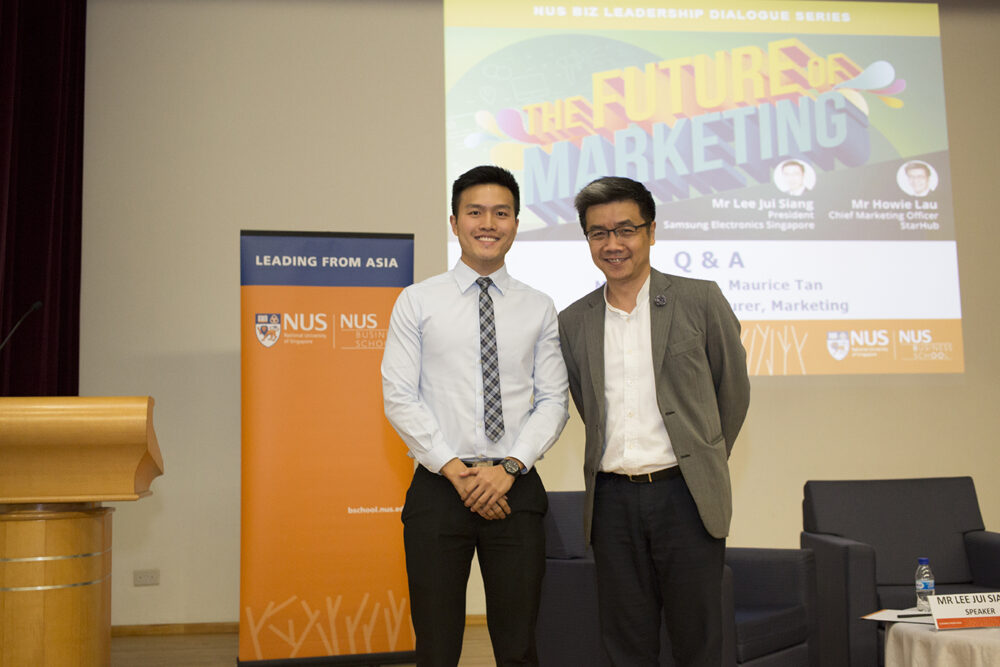
On addressing the need for having to constantly adapt to the changing environment, Mr Howie Lau introduced the Gartner Hype Chart, which focuses on emerging technology mega-trends. He added that in the past, new technologies were introduced every two to three years, but nowadays new products emerge every two to three months, highlighting the dire need for constant innovation to ensure that the firm maintains a competitive advantage. He said there is also a growing importance for the use of behavioural economics/science as consumers have a tendency to use their emotions to make purchase decisions. Marketers should focus on emotional drivers because it has more force compared to logical drivers and how first impressions are extremely crucial in determining people’s perception of a product or a person.
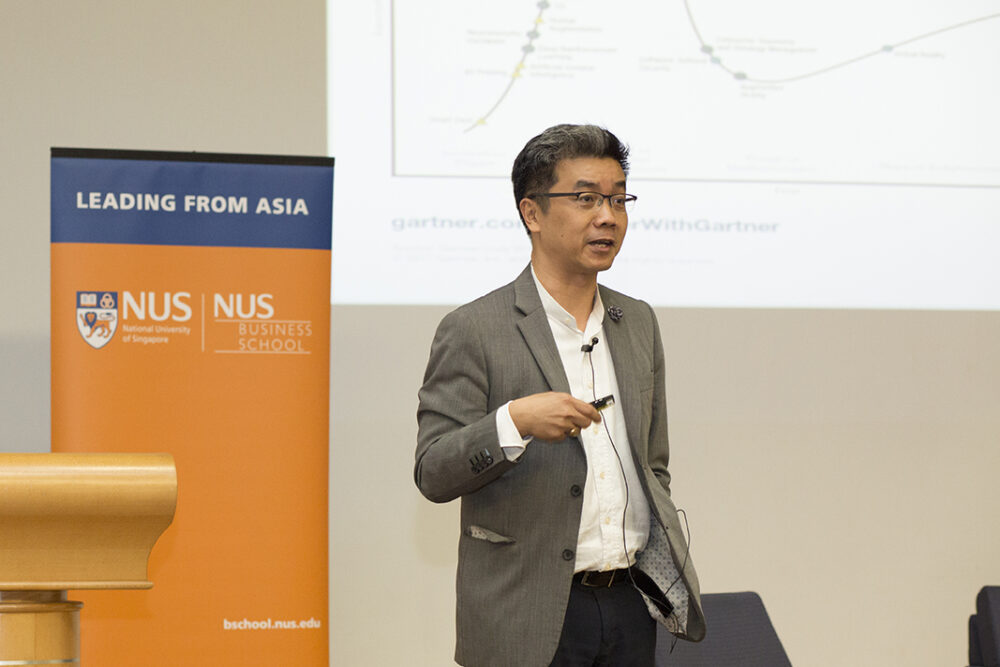
Mr Lee Jui Siang also agreed that the product cycle has been increasingly compressed due industry disruptions caused by advancements in technology. With this, he mentioned that companies have to identify consumer pain points and provide a unique value proposition to solve all their problems with an integrated solution. Mr Lee shared with the students a video illustrating the seamless integration of all household appliances to give families a safe and effortless experience when dealing with everyday activities at home. He also said, a good strategy is needed for even the best product you are selling. Without a good marketing strategy, a good product would be camouflaged among the sea of similar products in the market. He further added that as the product category matures, marketing and brand perception becomes even more important in differentiating the product.
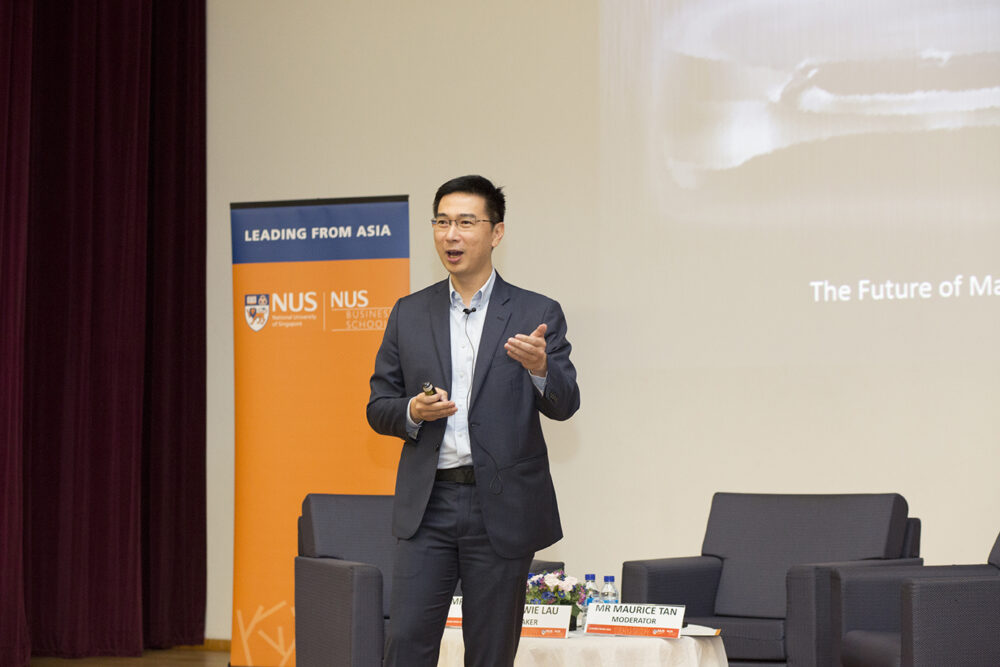
Mr Lau, on the other hand, shared a different perspective. He said that a product without good features will still be able to sell if the product is marketed very well. However, this would only work in the short-term because consumers will eventually be able to tell the difference, resulting in the erosion of consumer trust. Interestingly, a consumer perception test conducted by his team revealed that a fairly good product complemented with strong branding and marketing is still able to thrive and be successful.
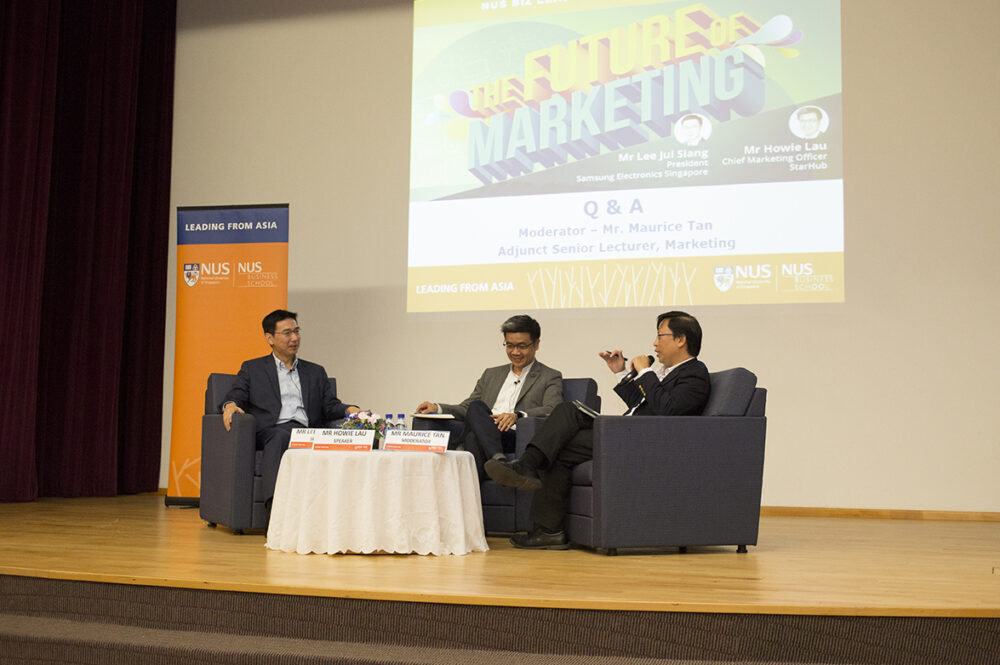
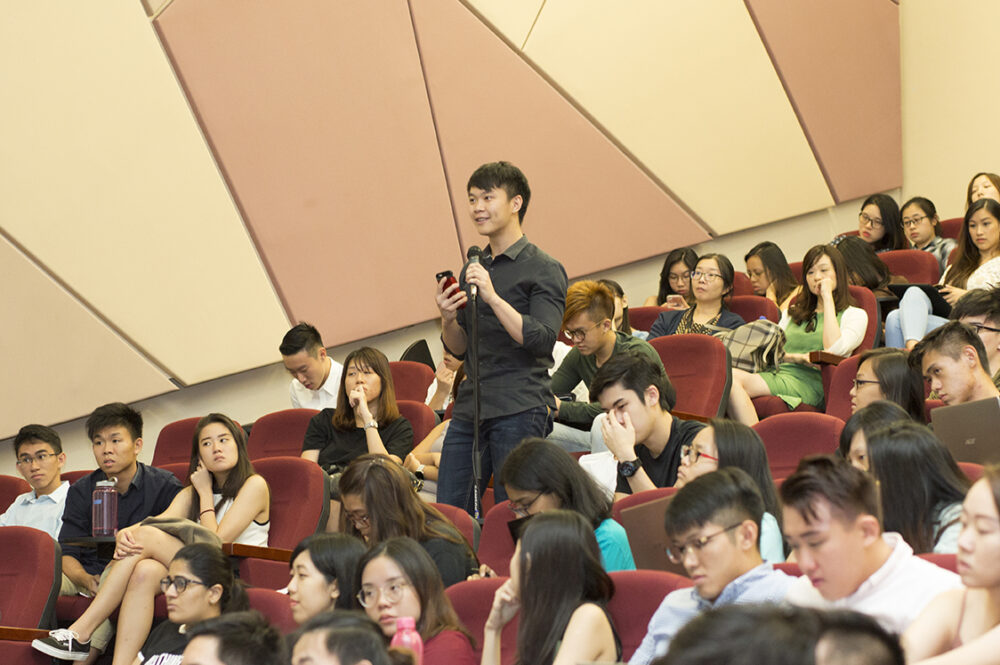
Overall, for me, this session on The Future of Marketing was an insightful one filled with interesting examples and personal experiences from both speakers. The session concluded with a Q&A session moderated by our NUS Business School’s Department of Marketing’s Adjunct Senior Lecturer Mr Maurice Tan.


